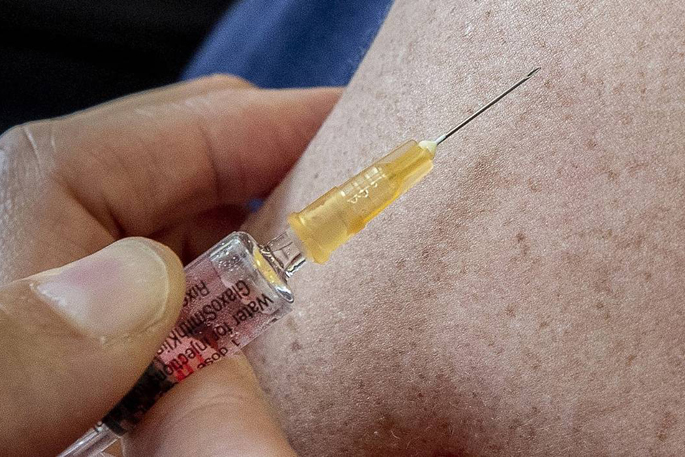Here's a potential attention grabber that might prompt vaccination and care in the middle of a measles outbreak – 'Measles is nine times more infectious than Ebola,” points out Dr Andrew Corin of The Doctors Tauranga medical centre in Devonport Road.
Ebola is the deadly viral disease-causing severe bleeding, kidney and liver failure and in many cases, death in West Africa.
Ebola transmission requires direct contact with infected body fluids, while the highly contagious and serious measles virus is spread by coughing and sneezing. It's much more explosive because it doesn't require direct contact with an infected person.
'For every person with measles, about 18 more will get it,” says Dr Corin.
And it's distressing for a medical practitioner to see a child unwell from measles. 'It's a disease which can cause severe complications, death and suffering and is entirely preventable,” says Dr Corin.
He has not seen any confirmed cases at the clinic this season. 'However, we have messaging advising patients and parents with suspected cases to phone and wait in the car park for assessment, before entering the building and potentially exposing others to the disease.”
That happens on average once a week.
'If the unwell patient is assessed not to have classical signs of measles they are brought into the walk-in clinic room and isolated for assessment.”
This isolation process includes cleaning the room for two hours. 'If the patient is felt to have measles the medical team will assess whether home or hospital level care is required and advice and treatment given.”
Tauranga Doctors are constantly reminding parents of the importance of vaccination and following the immunisation schedule.
'Anti-vaxers are definitely encountered regularly, but more often are parents who are either confused or misinformed. We offer education and support information to help parents decide about vaccination.”
Those who elect not to vaccinate are offered the opportunity to change their mind or discuss further when they are ready. Getting into an argument with people passionately opposed to vaccination is unproductive,” says Dr Corin.
The first advice is immunise on time, as per the free schedule – babies at 15 months and four years.
Immunisation is well proven to protect individuals, families and the community if the uptake of vaccination is adequate. If you were born before 1969, you are likely to be immune due to having naturally contracted measles as a child. If born after 1969, when immunisation started, you may not be immune, unless you were vaccinated.
If you are under 50 and not sure, get one dose of MMR vaccine. Many people want to have their immunity checked with a blood test. 'This is placing unnecessary demand on the medical practices and laboratories.”
If you are unsure, do it, get immunised. There is no harm from having an extra dose.
Adults born between 1969 and 1990 will have had one dose of MMR when the vaccine was introduced. They are advised to have a booster.
Unvaccinated children five years or older, teenagers and young adults need two doses of MMR one month apart. The measles outbreak is in Auckland, so don't travel to Auckland with small babies aged 0-14 months, as they are most at risk. If you must travel, vaccinate 12-14 month olds at least two weeks prior to travel.
If unvaccinated, do not take part in any large school or community activities because measles is highly infectious even before symptoms start. AIMS games organisers have advised anyone with measles symptoms to stay away – this means fever, runny nose, cough, sore red eyes or rash.
'We believe this advice does not go far enough,” says Dr Corin. 'Measles is highly infectious before symptoms are evident. Many of the medical staff in this practice believe unvaccinated participants should stay away.” For up to date and accurate information, visit: www.immune.org.nz



0 comments
Leave a Comment
You must be logged in to make a comment.